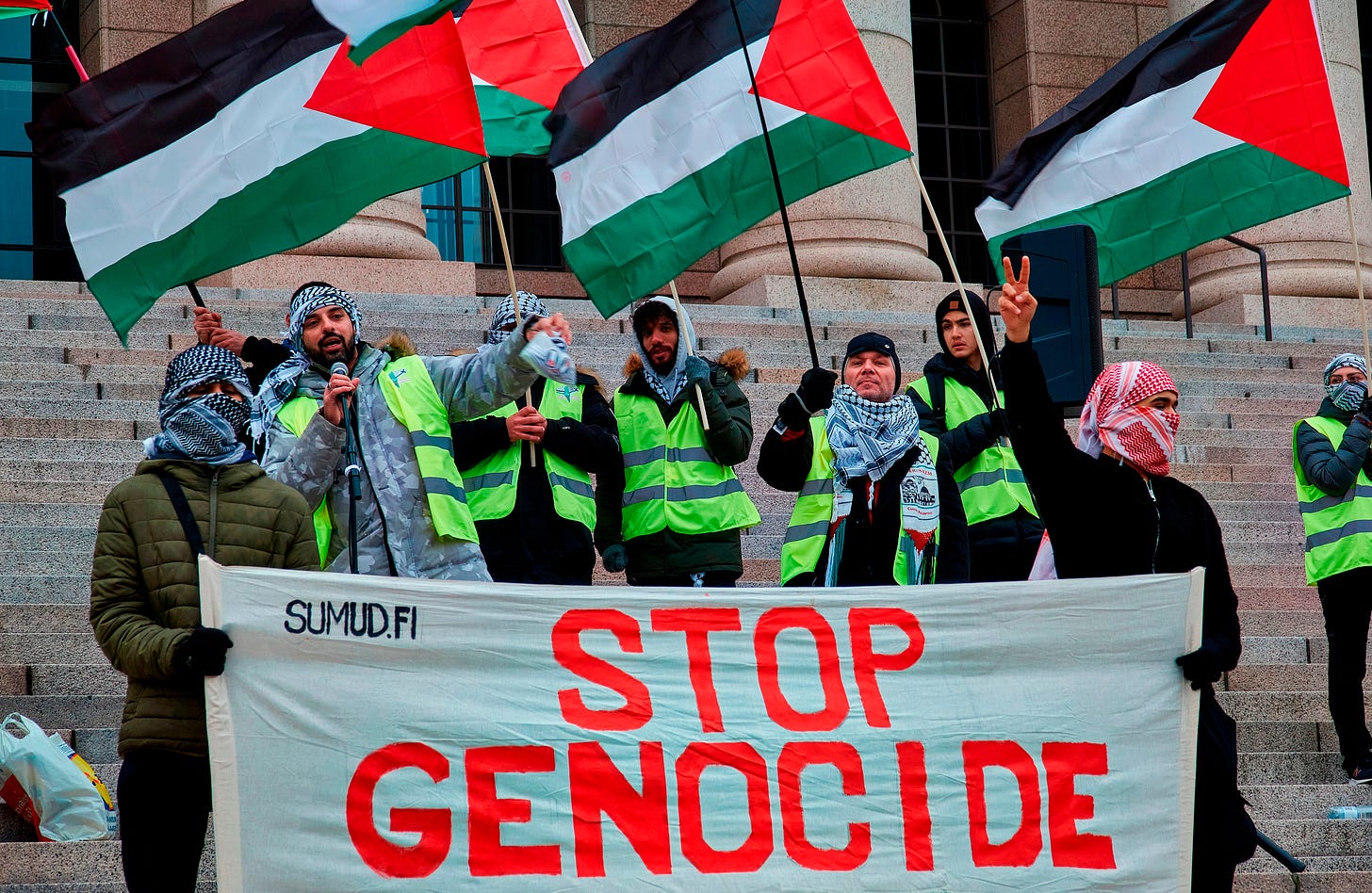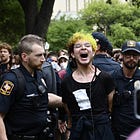I Joined the Genocide Scholars to Prevent Atrocities. Here’s How They Failed
Genocide scholar Sara E. Brown, Ph.D. writes that, by allowing their work to be weaponized against Israel, her colleagues have cheapened the term "genocide" and opened the door to further atrocities

Editor’s note: As the chorus of voices accusing Israel of genocide grows, we asked scholar Sara E. Brown, Ph.D. — who exposed the inner workings of the International Association of Genocide Scholars following its lopsided vote on the subject — to reflect on the charge and its implication for the study and prevention of genocide. On a separate note, I wanted to share a CNN interview I did earlier this week about how recognizing a Palestinian state will impact efforts to end the war in Gaza — a topic for a future piece. Shabbat Shalom from Jerusalem. — A.M.
On September 1, the International Association of Genocide Scholars (IAGS) drew international headlines by declaring that Israel is committing genocide in Gaza. The vote — taken by just 129 of an estimated 500 members — was based on discredited sources, a faulty reading of international law, and deeply prejudiced assumptions.
I was horrified, not only by the content of the resolution, but by the process that produced it: an association that once represented a growing, serious field has been exposed as a body with sham membership standards, an autocratic approach to resolutions, and — most disturbingly — a clear animus toward Israel.
For me, the disappointment was personal. I joined IAGS as a doctoral student in 2013, believing it to be a serious forum for the study and prevention of genocide. Back then, I was the only student at the Strassler Center for Holocaust and Genocide Studies at Clark University pursuing comparative genocide research. My work in Rwanda— examining the agency and impact of women who perpetrated the 1994 genocide as well as those who risked everything to rescue Tutsis — seemed niche. I had heard of IAGS but most of my colleagues did not take it seriously. They dreamed of presenting at top conferences about the Holocaust or the Armenian Genocide. But when I attended my first IAGS conference in 2014, the energy was palpable. Young scholars from around the world were digging into root causes of genocide and asking how their research might help prevent future atrocities.
The 2013 version of me would be shocked to learn that, twelve years later, IAGS has failed to fulfill any of its promises.
On October 7, 2023, Hamas terrorists murdered, tortured, raped, and abducted Israeli civilians in a brutal campaign of mass violence. The attack was genocidal — intended to kill Jews because they were Jews — and Hamas leaders openly promised to perpetrate atrocities again and again. The IAGS leadership’s response was chilling: no urgent resolution, no statement condemning Hamas, no recognition that the atrocities met the criteria of genocidal violence.
That December, I published a peer-reviewed policy brief analyzing Hamas’ crimes, intent, and ongoing threats. I concluded that Hamas’ attacks against Israeli civilians were acts of genocidal violence, and that its promises of further massacres constituted a grave risk of genocide. I recommended that IAGS and other scholars recognize this reality, denounce Hamas, and help combat denial and disinformation.
IAGS ignored these recommendations entirely.
Instead, the leadership remained silent about Hamas’ explicitly genocidal violence and, on September 1, forced through a resolution falsely accusing Israel of genocide. I was appalled, both by the content of the resolution and by the deeply flawed process that produced it: a vote taken by just a quarter of the group’s membership, without any debate, drawing on antisemitic and discredited sources and misrepresenting international law. I went public with my concerns, and scholars and experts quickly joined me in dissecting the resolution’s factual and legal errors. For an association supposedly dedicated to prevention, this reversal of moral clarity was unthinkable.
The problems go deeper than one vote. Membership is not limited to scholars, practitioners, or professionals — anyone with a credit card can join and participate in IAGS’s decision-making process. That might be defensible, even laudable, if the association were transparent about whom it represents. Diversifying the association can be a strength, but at the same time, it cannot purport to be a body of experts if its membership is open to all who are interested in the field — including activists without training or expertise.
This lack of integrity has consequences. By branding Israel as genocidal, IAGS cheapens the meaning of the word “genocide,” dishonors the memory of its victims, and provides cover for terrorists who call for and attempt to perpetrate more massacres. Worse, such resolutions can be weaponized to justify antisemitic rhetoric, discrimination, and even violence.
Thankfully, the scholarly community is not standing by. More than 500 scholars and experts have signed the Scholars for Truth About Genocide open letter, demanding that IAGS retract its resolution and affirm that Hamas is guilty of genocide. Their voices reflect the seriousness and integrity that IAGS once aspired to represent — and they show that many in the field reject the politicization and distortion that have overtaken the association.
This controversy is not an inside-baseball dispute among academics. The words and actions of scholarly associations shape public discourse, influence media narratives, and guide policymakers. When experts abdicate their responsibility — or allow their platforms to be hijacked by ill-intentioned activists — society suffers. We have seen this before. German scholars lent their prestige to normalizing Jew-hatred during the Holocaust. Today, when a leading genocide association fails to recognize Hamas’ genocidal violence while smearing Israel, it echoes that betrayal of academic responsibility.
I am not sure how IAGS can restore its legitimacy. Its leadership has compromised the association’s academic, professional, and moral integrity in pursuit of headlines and interviews. At a minimum, it must retract the September 1 resolution and acknowledge its flaws. It must either reform membership rules so that the organization reflects actual experts, not whoever pays dues, or change its acronym to accurately reflect its membership. And it must confront Hamas’ genocidal violence with the same clarity it applies to other cases.
Absent such reforms, journalists and policymakers should stop looking to IAGS as a credible authority. The responsibility for clear, rigorous, and courageous scholarship falls to those willing to uphold standards, not compromise them.
I joined IAGS because I believed genocide studies could save lives and prevent atrocities. That belief has not changed. But the association that once gave me hope now undermines the very mission it claims to serve. The next time questions arise about genocide, let us turn to actual experts — those committed to accuracy, prevention, and truth. Sadly, the International Association of Genocide Scholars no longer fits the bill.
Sara E. Brown is Director of the San Diego office of American Jewish Committee. She holds the first Ph.D. in comparative genocide studies from the Strassler Center for Holocaust and Genocide Studies at Clark University.





